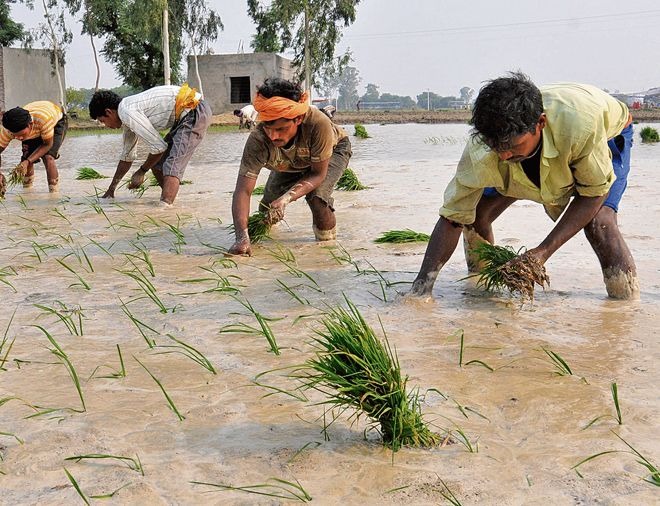Amritsar, June 9, 2024 – As the paddy transplantation season approaches, farmers in Amritsar district are increasingly worried due to a severe shortage of farm workers. Traditionally, migrant workers from other states have been crucial in assisting local farmers during this busy period. However, this year, the influx of these workers has significantly reduced, causing mounting concerns among the farming community.
Local farmers now find themselves relying heavily on the limited number of local workers, most of whom are already employed in other sectors. The arduous task of transplanting paddy saplings is also a deterrent for many potential labourers. “Transplanting paddy is very hard work, and not many labourers are willing to do it,” explained Gurnam Singh, a local farmer.
The shortage of labour has already driven up the costs of paddy transplantation significantly. “Last year, in villages near the city, we had to pay over Rs 4,500 per acre due to the labour shortage. This year, we might have to spend even more,” said Sahib Singh of Malawali village. Farmers usually start booking labourers weeks before the season begins to ensure they have enough help, but this year, finding workers has been exceptionally difficult.
Despite the government’s efforts to promote mechanical transplanting and the direct seeding rice (DSR) technique as solutions to the labour shortage, many farmers still prefer manual transplantation. “These techniques are costly and most farmers do not have access to the necessary equipment,” explained an agriculture official. Additionally, the mechanised methods require special preparation of seedling nurseries, which many farmers are not familiar with.
The Agriculture Department estimates that paddy will be cultivated on nearly 1.80 lakh hectares in the district this season. To address the labour shortage, the department has been organizing training sessions to educate farmers on alternative transplantation techniques. However, the adoption of these methods remains limited among the farming community.
Farmers hope for a resolution soon, as the scarcity of labour threatens to disrupt the timely transplantation of paddy, impacting their productivity and income.

